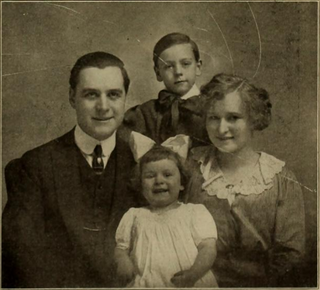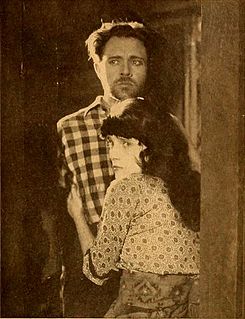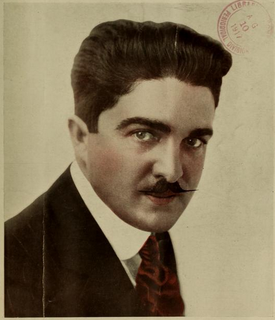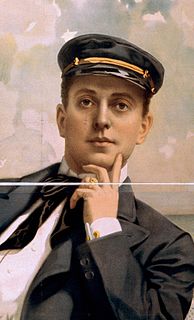Related Research Articles

William Wallace Halleck Reid was an American actor in silent film referred to as "the screen's most perfect lover". Reid also had a brief career as a racing driver.

Herbert Brenon born Alexander Herbert Reginald St. John Brenon was an Irish film director, actor and screenwriter during the era of silent movies through the 1930s.

Clara Kimball Young was an American film actress, who was highly regarded and publicly popular in the early silent film era. She married fellow actor James Young (director) who went on to direct films.

Antonio "Tony" Moreno was a Spanish-born American actor and film director of the silent film era and through the 1950s.

James Cruze was a silent film actor and film director.

Tom Forman was an American motion picture actor, director, writer, and producer of the early 1920s.

Harry Benham was an American silent film actor.

Niles Eugene Welch was an American performer on Broadway, and a leading man in a number of silent and early talking motion pictures from the early 1910s through the 1930s.

William Christy Cabanne was an American film director, screenwriter and silent film actor.

Mary Jane Lee, known professionally as Jennie Lee, was an American actress of the stage and screen.

James Neill was an American stage actor and film actor of the silent era. He appeared in 113 films between 1913 and 1930. His wife, and frequent costar on stage and screen, was Edythe Chapman.

Rollin Summers Sturgeon was an American film director of silent films active from 1910 to 1924. He directed 101 films during this period.

Jules Mary was a French novelist. His melodramas were traditionally popular subjects for adaptation by filmmakers, and his best-known work Roger la Honte has been made into films five times.
Harry Royston was a British stage and film actor. He appeared in more than sixty short and feature films during the silent era including Lady Jennifer.
Shadows of a Great City is a 1913 British silent crime film directed by Frank Wilson and starring Alec Worcester, Chrissie White and Harry Royston. It is an adaptation of the 1884 play The Shadows of a Great City by Herbert Blaché and Aaron Hoffman. An American film adaptation was made two years later.
Flora Morris was a British stage and film actress. She played the lead in the 1915 crime film After Dark.
Warwick Buckland (1863–1945) was a British stage actor. He later became a film actor and director. He directed the 1915 crime film After Dark.
Ruth Mackay was a British stage and silent film actress. She was married to actor Eille Norwood.
Cyril Percival (1889–1948) was a British film actor of the silent era.
References
- ↑ Goble p.49